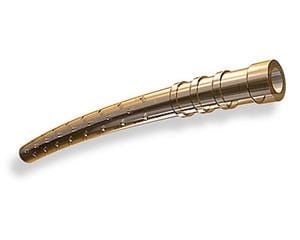According to the Glaucoma Research Foundation (GRF), glaucoma is the leading cause of blindness in the U.S. The disease affects an estimated 3 million Americans, with more than 120,000 suffering blindness because of it.

On July 29, 2016, the FDA approved a new treatment for glaucoma called the Alcon CyPass Micro-Stent. This is a medical device inserted during cataract surgery that helps lower intraocular pressure (IOP) in glaucoma patients. The device was designed to help slow the progression of the disease and preserve vision.
In August 2018, however, Alcon voluntarily recalled all CyPass Micro-Stents, after results of a post-marketing study showed that the implant could increase risk of permanent eye damage.
5-Year Study Shows Concerning Safety Risks with Alcon CyPass Micro-Stent
The Alcon CyPass Micro-Stent is a small tube with tiny holes in it that is implanted in the eye during cataract surgery. Once there, it helps drain the fluid that causes elevated eye pressure and vision loss in patients with glaucoma. The Clinical trial used to secure FDA approval showed that after two years, the device significantly reduced IOP.
At the time of their approval, however, the FDA recognized a potential for the device to cause adverse effects in the long-term, so they ordered manufacturer Alcon (a division of Novartis) to continue to follow patients enrolled in the original clinical trial for five years after surgery.
The FDA released a safety communication on September 14, 2018, warning that their initial review of the results from that five-year study showed
“a concerning difference in the degree of corneal cell loss in patients who received the CyPass device compared to those who did not receive it.”
Alcon Recalls CyPass MicroStent from the Global Market
At the front of the eye is the cornea—the dome-shaped surface that covers the eye. It protects the eye from dirt, germs, and other particles, and helps focus light on the retina, which is the light-sensitive tissue at the back of the eye.
The cornea is lined with endothelial cells that help keep the cornea clear, thereby keeping vision clear as well. These cells pump any excess fluid out of the thickest area of the cornea. If they don’t work right, fluid can build up in this area, obscuring vision.
These endothelial cells, once they are damaged, cannot be repaired or replaced. Results from the five-year study on the Alcon CyPass Micro-Stent show that after five years, patients implanted with the device had fewer of these endothelial cells than did those who weren’t implanted with the device. The cells they still had were also less dense than those in patients without the device.
Considering these results, Alcon implemented their recall in August 2018, but noted they would continue to work with the FDA in the hopes of reintroducing the product in the future.
FDA Recommends Doctors Evaluate Patients for Endothelial Cell Loss
On October 24, 2018, the FDA issued an updated safety communication stating that they had received additional post-approval study data confirming the recommendations they made in September and supporting three new recommendations to eye care providers. Their findings showed that at the five-year follow-up, 27.2 percent of implanted patients had more than 30 percent loss in endothelial cell density.
They also discovered a link between how far the implant extended into the interior chamber of the eye and the rate of endothelial loss. The farther into the eye the implant extended, the more significant the cell loss. So far, however, data is lacking on whether trimming the device to be in a more optimal position would help preserve endothelial cells.
The FDA recommended that doctors not implant the CyPass Micro-Stents and return any unused devices to Alcon. Physicians can call the company at 1-800-862-5266 for information on how to return unused devices. The FDA also advised physicians to regularly evaluate patients with the CyPass device implanted for endothelial cell loss.








